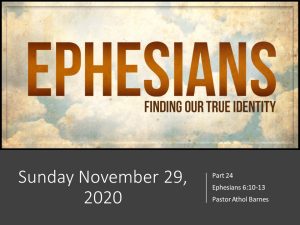
“Lord bless everyone”, “Lord please heal all the sick people”. How often have we prayed similar broad and general prayers? Is it possible that we pray generally because we don’t have the faith that God will actually do what we ask if we pray a specific prayer?
I believe that a specific prayer request is something that draws God in. As we get specific in our prayers, our relationship with our Heavenly Father grows more personal.
God will answer specific prayers directed to His throne, linked with the authority of the name of Jesus. It has been said that “Prayer is the key to unlocking God’s prevailing power in your life”.
In James 5:13-16, we see four categories of people who are encouraged to pray.
1: The first person is the person in trouble, “Is anyone among you in trouble? Let them pray” James 5:13a.
The word “trouble” used here could also mean suffering or hardship. Any form of emotional, mental, spiritual, or physical hardship.
James tells the troubled person to pray. We must realize that this is not a promise of immediate relief from the suffering, but there is a promise of strength and peace from the Lord during suffering. When we choose not to pray, we are compounding the problem and heading towards even further distress. Prayerless people cut themselves off from God’s power, and this leads to emotional defeat and the feeling of being overwhelmed.
The key is persisting in prayer even when we don’t see a solution or outcome.
2: The second person is the happy person, “Is anyone happy? Let them sing songs of praise.” James 5:13b.
Singing worship songs with lyrics that declare the attributes and glory of God, is singing a prayer. When we are happy and at peace, we want to thank God for His blessing and goodness. What better way to do this than to sing out His attributes, praising Him for who He is.
Sadly, there are too many modern songs and old hymns that speak about the emotions and feelings of the singer. These songs are not bad, but simply are not worship songs, because the Lord is not the object of our focus. The sad reality is that we live in a church culture that thinks that the worship service must be designed to cater to our needs and desires. However the Lord needs to be the object of our focus and our affection (Mark 12:29-30).
It doesn’t matter if we have plenty or are struggling, whether we are doing well or just getting by, whether we are emotionally drained or emotionally strong; we have the privilege to declare the praises of the One who is sovereign over all.
What if we had a paradigm shift and worshipped because it blesses God. Who cares if we don’t sound good or don’t feel like it, it’s a privilege to bless our Father in Heaven.
3: The third person is the desperately sick person, “Is anyone among you sick? Let them call the elders of the church to pray over them and anoint them with oil in the name of the Lord” James 5:14.
The Greek word used here for sick, is a debilitating illness, leading to death. James gives a prescription for how to pray for the sick person.
- Call the elders. The church elders are spiritual leaders in the church.
- Pray with faith. This is the faith of the one (s) offering the prayer. Remembering that faith is not something we muster up in our own will. Faith comes from God.
Prayer offered in faith is circular, beginning and ending in Heaven.
I have prayed for many people; some have been healed and some have not. We cannot muster up faith and expect God to heal when a certain level has been reached. He gives us faith and we return that faith in the form of prayer for the sick person, God then uses the faith we have, to heal the person.
- Anoint with oil. In the first century, anointing oil was widely regarded as best medical practice at the time (Luke 10:34). The practice of anointing with oil today during prayer is different, but no less powerful in its application. It is a symbolic act, much like washing each other’s feet.
- Pray in the name of Jesus. Or praying with the will of the Lord” (1 John 5:14-15). This is where the asking specifically is key.
We have all prayed the prayer that goes something like, “Lord if it is your will then please…” While this sounds good and Biblical, we are forgetting that the Lord has invited us to ask for what we need.
Why don’t we pray specifically, and ask the Lord for what is on our heart? If you have a sick loved one, or any other need, we have the permission to come before the throne of the almighty God and ask. Why not ask specifically for what we want and leave the results up to Him.
4: The fourth category is the person who is sinning, “Therefore confess your sins to each other and pray for each other so that you may be healed. The prayer of a righteous person is powerful and effective” James 5:16
As followers of Jesus, we are called to a lifestyle of holiness (James 4:1-10). Righteousness is a free gift from God, when we confess our sins and are washed by the blood of Jesus. There is power and healing in the confession of our sins to one another, and this is a necessary discipline in the Body of Christ. However, confessing to each other does not bring righteousness, only Jesus can do that (1 John 1:9).
Righteousness is not something we do, it’s something we receive. That is why, when we pray in the name of Jesus, and we are covered in his righteousness, our prayers are powerful and effective.
How is your prayer life? Is it effective?
“As your prayer life goes, so goes your spiritual life, as your spiritual life goes, so goes the rest of your life.” Ronnie Floyd.











